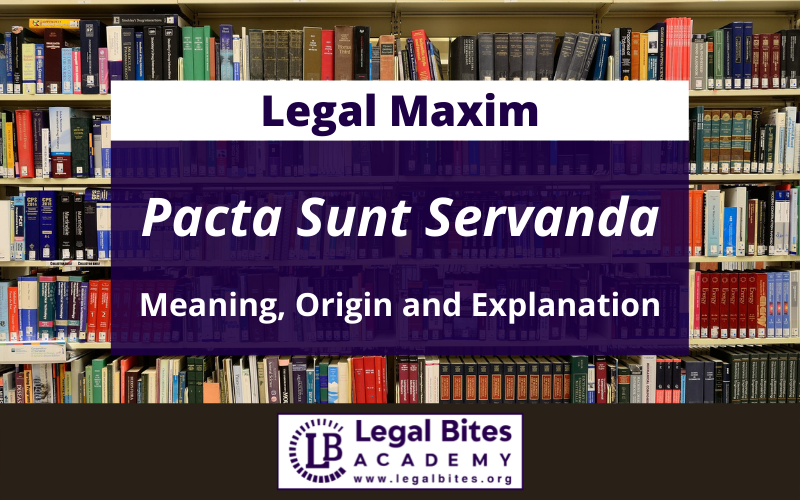This article titled ‘Pacta Sunt Servanda: Origin, Meaning and Explanation’ is written by Sahajpreet Bhusari and discusses the maxim of Pacta Sunt Servanda. I. Origin and Meaning Pacta Sunt Servanda is a legal term of Latin origin. In Latin, the term translates to ‘agreements must be kept’.[1] II. Explanation It is present in both civil and international law. In international law, this means that all treaties are binding on the parties and they must be performed in good...
This article titled ‘Pacta Sunt Servanda: Origin, Meaning and Explanation’ is written by Sahajpreet Bhusari and discusses the maxim of Pacta Sunt Servanda.
I. Origin and Meaning
Pacta Sunt Servanda is a legal term of Latin origin. In Latin, the term translates to ‘agreements must be kept’.[1]
II. Explanation
It is present in both civil and international law. In international law, this means that all treaties are binding on the parties and they must be performed in good faith. Good faith refers to the sincere intention to perform one’s duty without malice and ill will. The parties to this treaty must fulfil their promises and obligations to the extent possible.
III. Application
Law embodies an important principle of the General Principles of Law. The General Principles of Law are the source of international law. The principles of Pacta Sunt Servanda are also embodied in the Permanent Court of Justice and the International Court of Justice.
As for the United Nations, it is believed that all member states are “civilized” and are expected to follow the principles of the Pacta Sunt Servanda when dealing with obligations, agreements and promises. This bears in mind that the parties to these international treaties and agreements have already agreed to each other since international law is a consent-based system.
IV. Case Law
The court in the Nuclear Test Court (Australia v. France[2]) based on the doctrine of Pacta Sunt Servanda (i.e., must keep promises) held that trust is inherent in international cooperation, especially at a time when cooperation in many fields is becoming more and more essential.
Just as the Pacta Sunt Servanda, rule in treaty law is based on good faith, so is the binding nature of an international obligation assumed by a unilateral declaration. Consequently, the States concerned may be aware of the unilateral statements and believe them and have the right to demand that the obligation thus created be respected.
References
[1] Pacta Sunt Servanda, Available Here.
[2] [1974] ICJ Rep 253.
- Law Library: Notes and Study Material for LLB, LLM, Judiciary and Entrance Exams
- Legal Bites Academy – Ultimate Test Prep Destination



